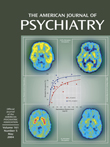To the Editor: In his questionnaire study of psychiatric residents’ understanding of mood and affect
(1), Michael Serby, M.D., identified an important problem in modern-day American psychiatric education. However, his conclusions were unnecessarily conservative. Dr. Serby highlighted a problem that goes beyond mere semantics and conceptual confusion about a particular
terminus technicus. His study points to a three-pronged structural flaw in psychiatric residency training (and thus in psychiatry in general): 1) undue and preeminent focus on patient self-reports of cross-sectional symptoms; 2) little, if any, reliance on the mental status examination; and 3) the consequent inability to make well-substantiated syndromal diagnoses. Too often, patients are permitted (perhaps encouraged) to simply enumerate symptoms rather than describe their experiences phenomenologically. In this enterprise, the psychiatrist is frequently an indictable coconspirator in equating the layman’s vernacular (e.g., “depressed,” “mood swings,” and “racing thoughts”) with an expert’s diagnostic jargon
(2). Examples are not only limited to symptoms and experiences in the affective domain but include many more (e.g., paranoia, obsession, anxiety, and trauma). In essence, the patient tells the physician what his or her diagnosis is.
Unfortunately, there is no easy solution since this state of affairs is the direct result of teaching psychiatry by means of a coding manual—DSM—as opposed to teaching the descriptive psychopathology of clinical syndromes (that only later are coded according to some consensus scheme). While obviously not intended by the DSM’s framers, this document renders symptom hunting by checklist the modus operandi of the modern American psychiatrist. A critical mass of stereotypically worded symptoms is elicited or solicited and seldom merged with an understanding of the patient’s actual subjective experience and ostensibly objective mental status. Of course, the DSM does not stand in contrast or opposition to clinical diagnoses if used wisely, but in order to use the DSM, one ought to have knowledge of psychiatry first. Our specialty hands out a list of symptoms and essentially tells students and residents to “ask away.” One only has to look at the clipboard that medical students carry around on their psychiatric rotations or the DSM-centered multiple-choice questions that purport to assess medical students’ and residents’ (and board candidates’) knowledge of psychiatry to appreciate our observation. Any supposed mantle of respectability or objectivity that this bestows upon psychiatry occurs at the expense of its patients and its own intellectual integrity.

